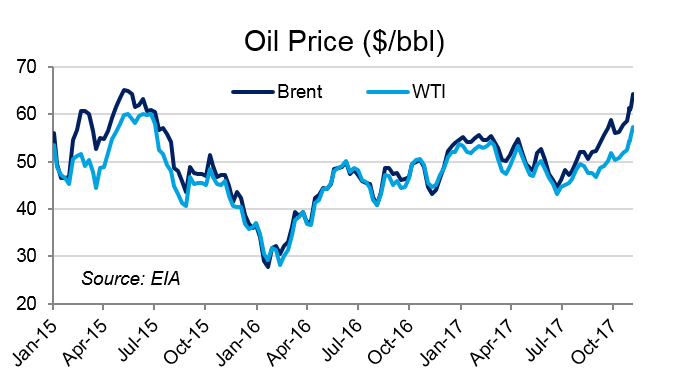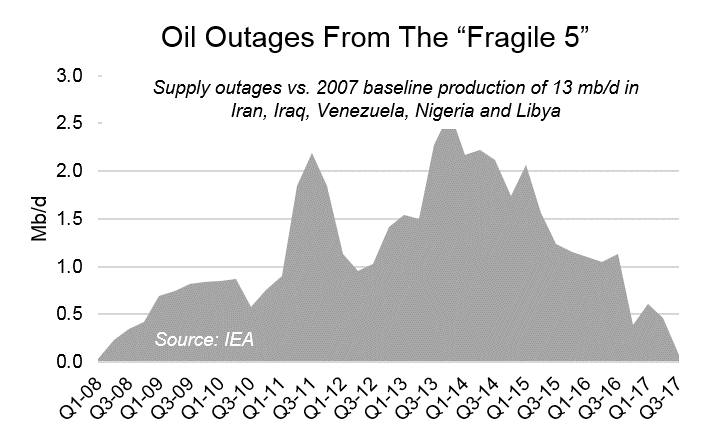10 November 2017
Global oil markets are tightening as high oil demand and OPEC supply cuts have resulted in a drawdown in global oil inventories. This in turn has give support to oil prices, with Brent crude recently hitting a 28-month high of $64 / bbl. OPEC is currently deciding whether to continue supply cuts past the March 2018 deadline, but their decision may be clouded by what is going on in some of their member nations, particularly in those nations that have been dubbed the “fragile five”.

The “fragile five” consists of Iran, Iraq, Venezuela, Libya and Nigeria, all of which have geopolitical instabilities that could upset the oil market at any time. In Iran, there is the renewed threat of US sanctions. Iraq is battling instability in the northern regions following the recent vote for Kurdish independence. Venezuela is struggling to maintain oil production, and is also dealing with oil quality issues due to the perilous financial state of PDVSA. Libya continues to deal with internal political struggles. And Nigeria is facing a renewed threat to oil infrastructure from militant groups in the Niger Delta.

The interesting thing about these countries is that, with the exception of Venezuela, all have been producing at the top of their range recently. The maximum crude output from these five countries (in recent history at least) was 13 mb/d in late 2007. Since then, supply has been disrupted, for various reasons, by as much as 2.5 mb/d. However, supply in Q3-17 stood at 12.9 mb/d, almost back to 2017 levels.
Clearly, the risk to oil production in these nations is firmly to the downside, and those risks are rising. Any disruption to oil production is likely to put the oil market balance into further deficit, leading to higher oil prices. In this scenario, does Saudi Arabia let the oil market continue tighten and risk overshooting, or do they step in and add supply?
Time will tell as to what steps OPEC will take to keep the oil market in balance. In the meantime, we expect rising volatility due to geopolitics to be a key factor for tankers as we head into the seasonally stronger winter months.
